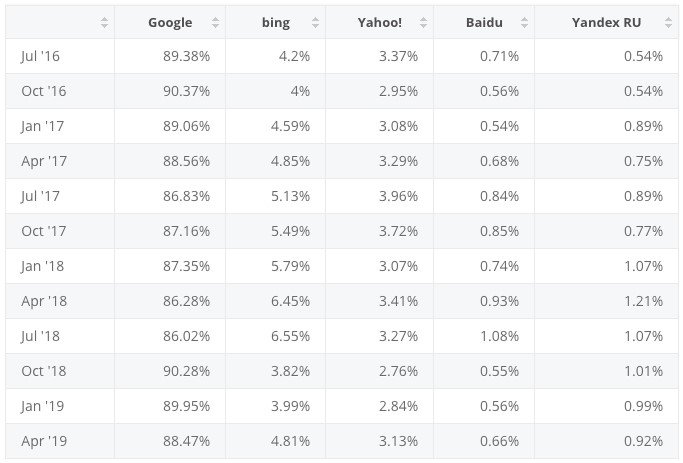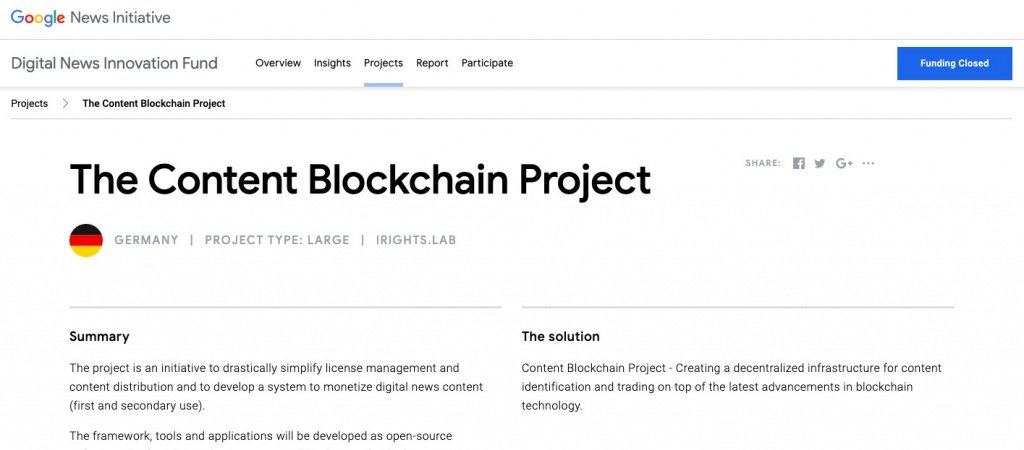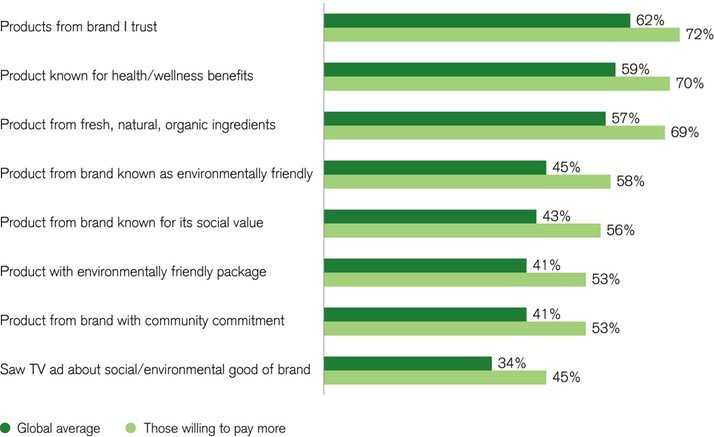How to Integrate Blockchain into Your Content Strategy
Content strategy and content marketing aren’t exactly the first things that come to mind first when thinking about blockchain. However, we know very well that blockchain stands to benefit a wide range of industries... Is content marketing one of them?
Let’s begin with the company that started it all, Google.
Can Blockchain Change the Way Google Works?
Most of the Earth’s population uses Google for their internet search needs. According to the latest calculations by Statista, the search giant’s share of the global search engine market has been largely unchanged since 2016 and exceeded 88 percent in April of 2019.

Credit: Statista
No competitors even come close to dethroning Google as the global leader of the search engine market, and this means that the company has an unimaginably large amount of user-related data. Like many other search engines, Google constantly collects and updates information about its users in order to improve its own products and services as well as ensure the relevance of online ads.
Studicus’s Stephen LaCOSSE, a researcher of blockchain applications in education, agrees.
“The creation of a blockchain-based search engine as well as a decentralized internet browser could be a good solution because it would eliminate the need to transfer sensitive user data to third parties.”
In other words, blockchain can allow the search engine to generate relevant results without risking losing personal data by analyzing it itself. Moreover, the users of this technology would also be able to control access to their sensitive data and share it selectively.
While we haven’t heard about Google making steps in that direction, the search giant has been quietly experimenting with blockchain. According to this 2018 report by Bloomberg, the company is reportedly working on a blockchain-related technology for recording online transactions and processing other data over the internet.
More interesting is the news that Google has launched The Content Blockchain Project, the purpose of which is to “drastically simplify license management content distribution and to develop a system to monetize digital news content.” If completed, the project will create a decentralized infrastructure for content identification.

Credit: Google News Initiative
At this point, these projects are under development, but there are already some that already make an impact on the content strategizing and marketing.
Decentralizing the Global Content Ecosystem: What Should Content Strategists and Marketers Know?
With Google working on blockchain-related projects, it comes as no surprise that a lot of other companies have already made some progress in this area, too. What many of them are working on is indeed exciting; for example, one of them, a tool called Contentos, aims to decentralize the global content ecosystem by eliminating the middlemen between content creators and advertisers/search engine users.
Essentially, Contentos is a distinct content ecosystem based on blockchain that allows to:
- Create content
- Decide the value of the content
- Share the content with the Contentos community consisting of content consumers and advertisers
- Deal directly with advertisers and content users.
In addition to cutting the middlemen out of the picture, content creators can focus on producing more user-centered content because they wouldn’t have to deal with third-party guidelines. For content strategists, this new approach would mark a significant change in how the content creation and distribution work, because content creators can gain their audience more easily and promote their content differently.
“The fact that the members of content communities like Contentos are in charge of deciding which content creators should be promoted means that content strategists will have to ensure customer-centeredness,” points out Dorian MARTIN, senior writer from WowGrade.net.
“This translates into the need for more thorough content user research and planning, which is something that should also be on a content strategist’s agenda.”
By using this decentralized blockchain content ecosystem (which, by the way, is also funded by Google), publishers, bloggers, artists, authors, and other content producers will have to opportunity to connect with media companies, content distributors, and startups from all over the world.
Another great benefit here is more trust from potential customers that content producers using tools like Contentos and Content Blockchain could gain. People are becoming increasingly skeptical about online advertising and sales content — in fact, there’s evidence that 96 percent of customers don’t trust online ads - so using blockchain content marketing opportunities can help to build trust with transparency and customer-focused strategy.
By making their content address the needs and interests of the target audience, content marketers can streamline their content creation process; this also means that they would know when to translate content using online communities like IsAccurate to ensure maximum engagement.
Moreover, by using blockchain to demonstrate that everything is verified, environment-friendly, and documented, companies can also build trust. Sustainability considerations are among the top spending drivers, according to a recent Credit Suisse report, so creating content that emphasizes that should also be on the list of priorities of content strategists.

Credit: The Nielsen Global Survey of Corporate Social Responsibility and Sustainability; Credit Suisse
As you can see, 45 percent of global customers prefer to buy from brands known for being environmentally friendly while 58 percent are willing to pay more for their products, too. For content strategists, these findings are indeed profound, as they are in charge of planning and distributing content to share this information with customers.
Many brands are already creating content that contributes to their image; for example, Timberland regularly publishes Corporate Social Responsibility reports that track the company’s progress toward its 2020 sustainability goals. Moreover, Timberland is known for a wide range of environment-friendly initiatives and projects, which helps the company to drive customer loyalty and trust.
Summary
Clearly, content marketing has a lot to benefit from using the blockchain technology. Some of the ways include the following:
- Content distribution. Thanks to blockchain-based content communities, content marketers can distribute their content in a new way by connecting with advertisers and users directly
- More customer-centered content. Since the users of blockchain-based content platforms are the ones deciding which content producer gets promoted and rewarded, it’s safe to assume that sharing salesy, “in-your-face” style content would be a sure-fire way to fail
- An opportunity to build more trust with content. In addition to more customer-centered content, companies can also use blockchain to make their operations transparent, foster customer trust and build more trustworthy relationships with the target audience
- Search engines can use blockchain to update their privacy policies. A blockchain-based search engine could eliminate the need to transfer sensitive user data to third parties, which is something that we should keep our minds open to.
So, now that we’ve reviewed the potential - and current - impact of blockchain on the world of content marketing, one thing is clear: we shouldn’t expect the technology to revolutionize the way we create and distribute content at this point. In all honesty, blockchain has some amazing use cases in the field, but expecting a profound impact is a way to soon.
However, this is not to say that we shouldn’t keep ourselves updated on the latest content-related developments in the blockchain field. Clearly, the technology has a bright future, and it’s reasonable to assume that we’ll see some new exciting blockchain use cases in the content game in the nearest future.
So, to sum up, the best thing you can do as a content strategist and marketer right now is to familiarize yourself with what blockchain can do for you and become a contributor or content creator on platforms like Contentos. As companies are already using the technology to increase transparency and distribute content, you should definitely plan to leverage these tools to build a better strategy for your business.
About the author
Estelle Liotard is a professional blogger and a blockchain enthusiast. She’s a prolific researcher, and studying the potential impact of technologies like artificial intelligence and blockchain on content marketing is always on her agenda these days. In addition to writing blog posts for numerous publications, Estelle also works as a writer and editor at Trust My Paper.
Image courtesy of Odyssiant